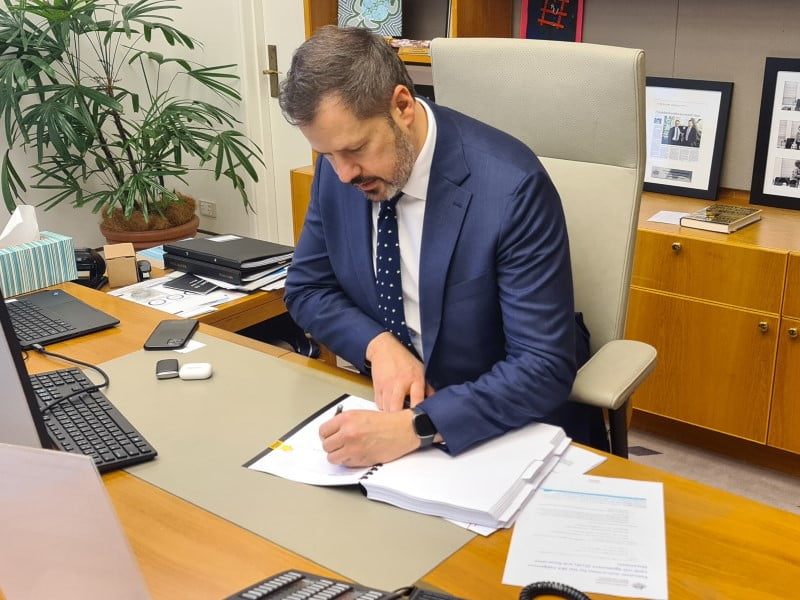Australian scientists specialising in nuclear physics, health and epidemiology have been appointed to the federal government’s science and technology advisory council, which went without a full compliment of members for all of last year.
Professor Mahananda Dasgupta, Professor Reuben Bolt and Professor Mark Hutchinson were appointed to the powerful National Science and Technology Council on Wednesday afternoon, each for a three-year term.
The council, which consists of up to ten members at any one time, provides scientific and technological advice to the Australian government, including rapid reports like it did for generative artificial intelligence last year.
It is chaired by Prime Minister Anthony Albanese, with Industry and Science minister Ed Husic as deputy chair and Australia’s chief scientist Dr Cathy Foley as its executive officer. CSIRO boss Doug Hilton also serves as an ex officio member.

Up to six scientific experts can be appointed to the council. Existing council members include Professor Genevieve Bell, a former Intel board member and the Australian National University’s new vice-chancellor.
Other members include award-winning mathematician, Emeritus Professor Cheryl Praeger, and molecular geneticist, Associate Professor Jeremy Brownlie, who were both appointed for a three-year term in March 2022.
Former ANU vice-chancellor Professor Brian Schmidt, who has been on the council since 2021, will depart at the end of next week. The two other vacancies have been unfilled for since at least the start of last year, according to archived versions of the government’s directory.
Professor Dasgupta, who will replace Professor Schmidt on February 18, comes to the council with a specialisation in accelerator-based nuclear fusion and fission, and was the first-ever woman to be tenured at ANU’s Research School of Physics.
An international leader in her field, Professor Dasgupta brings “expertise in nuclear physics including complex quantum interactions”, according to the government, helping the NSTC to advise government on critical technology areas.
Quantum is one of the initial focus areas of the Technology Investment Taskforce, a group set up within the Industry department in the second half of last year to advise government on emerging technology opportunities that would benefit from coordinated effort and investment
Professor Bolt, the deputy vice-chancellor for First Nations leadership at Charles Darwin University, comes to the NSTC with 20 years’ experience in higher education, including in health and epidemiology. He is the first-ever indigenous Australian to be appointed to the council.
He brings experience “as an indigenous leader to elevate First Nations knowledge and knowledge systems”, the government said. Last year, indigenous knowledge was omitted as a standalone priority from a draft version of Australia’s new national science and research priorities.
Professor Hutchison, who stepped down as president of influential industry group Science and Technology Australia in November, also joins the council, bringing expertise in “research commercialisation and medical technologies”.
He is currently the director of the ARC Centre of Excellence for Nanoscale BioPhotonics, which is developing technology for early diagnosis and treatment of neurological diseases out of the University of Adelaide.
Announcing the changes to the council on Wednesday, Industry and Science minister Ed Husic said the diverse group of appointees would help the council deliver “timely and tangible advice to government”.
“I congratulate Professor Mahananda Dasgupta, Professor Reuben Bolt and Professor Mark Hutchinson on their appointments to the National Science and Technology Council,” Mr Husic said in a statement.
“Their exceptional scientific expertise will be of tremendous benefit to the Council, particularly in areas such as indigenous education, health sciences, research commercialisation, nanotechnology, and nuclear physics.”
Dr Foley, Australia’s chief scientist, also welcomed the three new members, which she described as “brilliant people who bring richness to the work of the NTSC”.
“I’m very pleased to have such a strong NSTC continuing with our new members,” she said in a statement on Thursday.
Dr Foley also offered her thanks to outgoing member Professor Schmidt for bringing “immense intellect and dynamism to the council” over the last three years.
Do you know more? Contact James Riley via Email.

